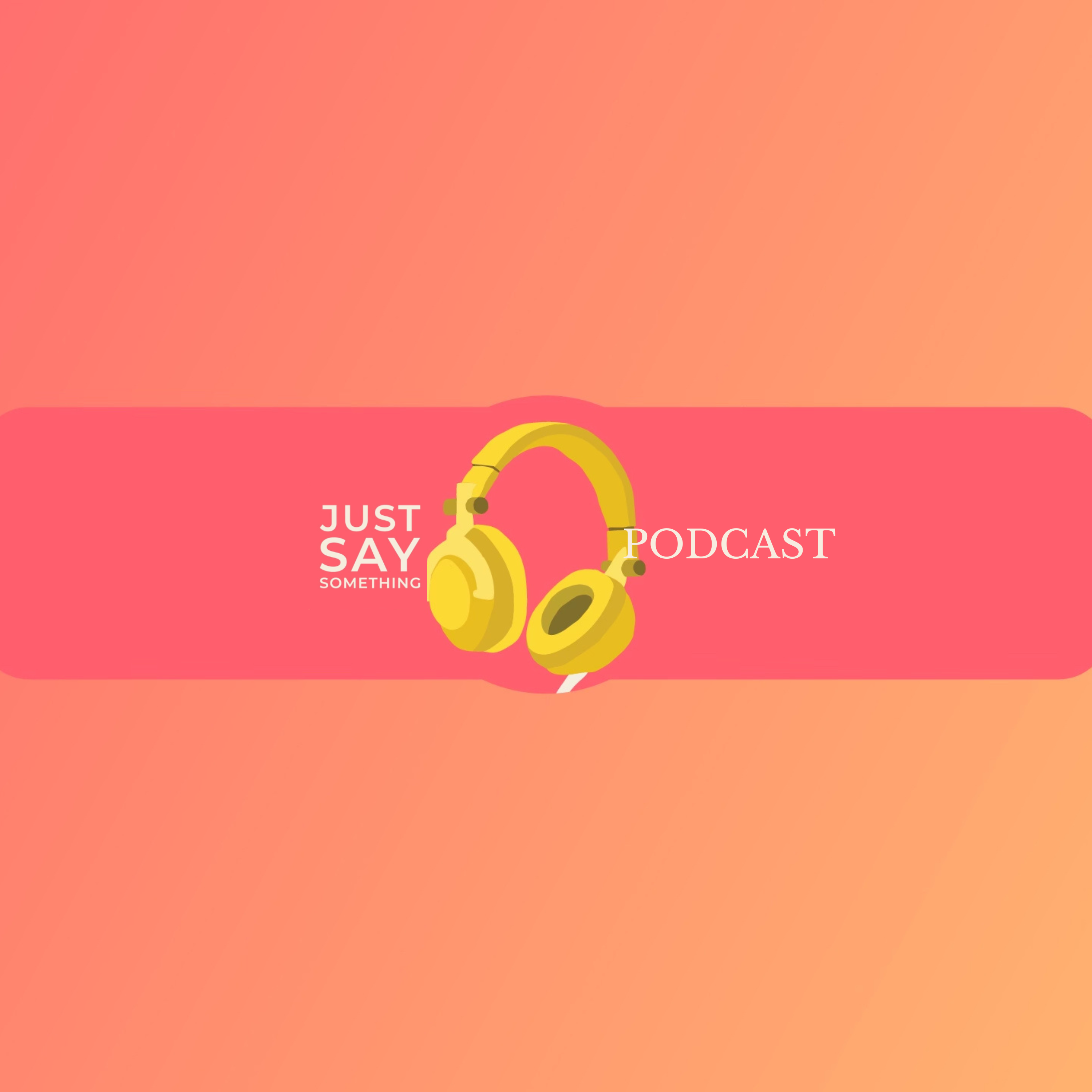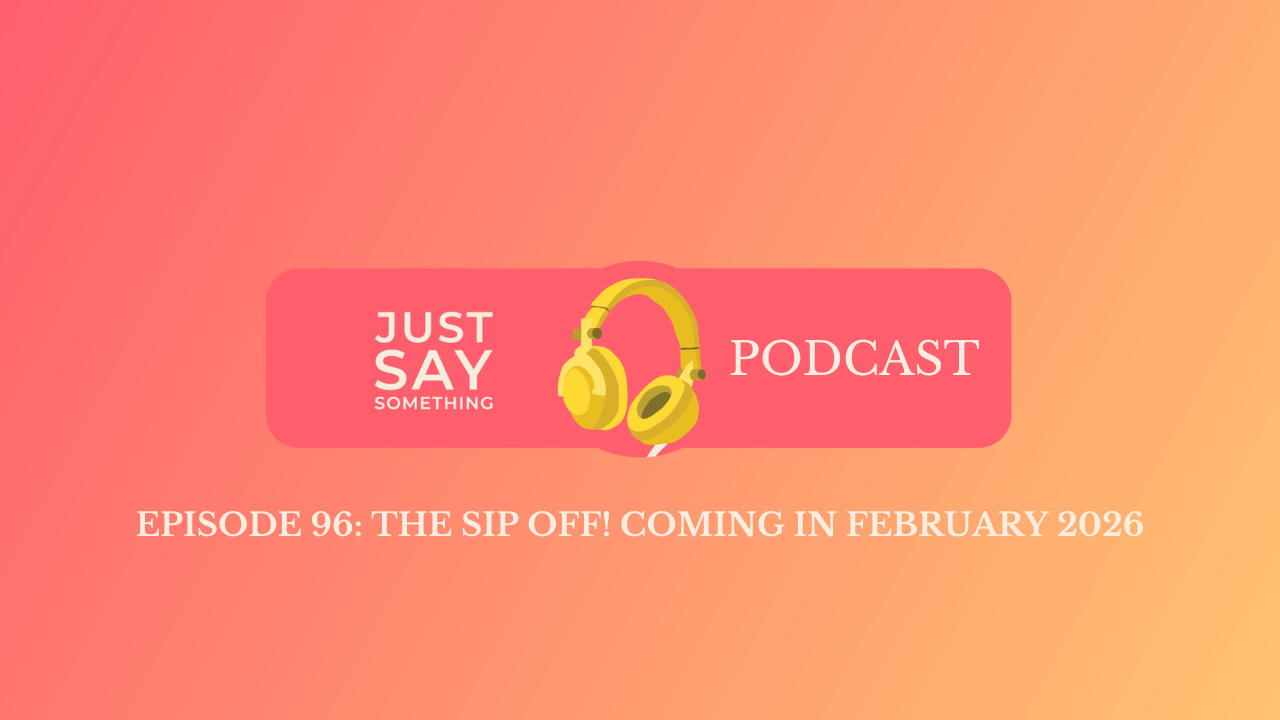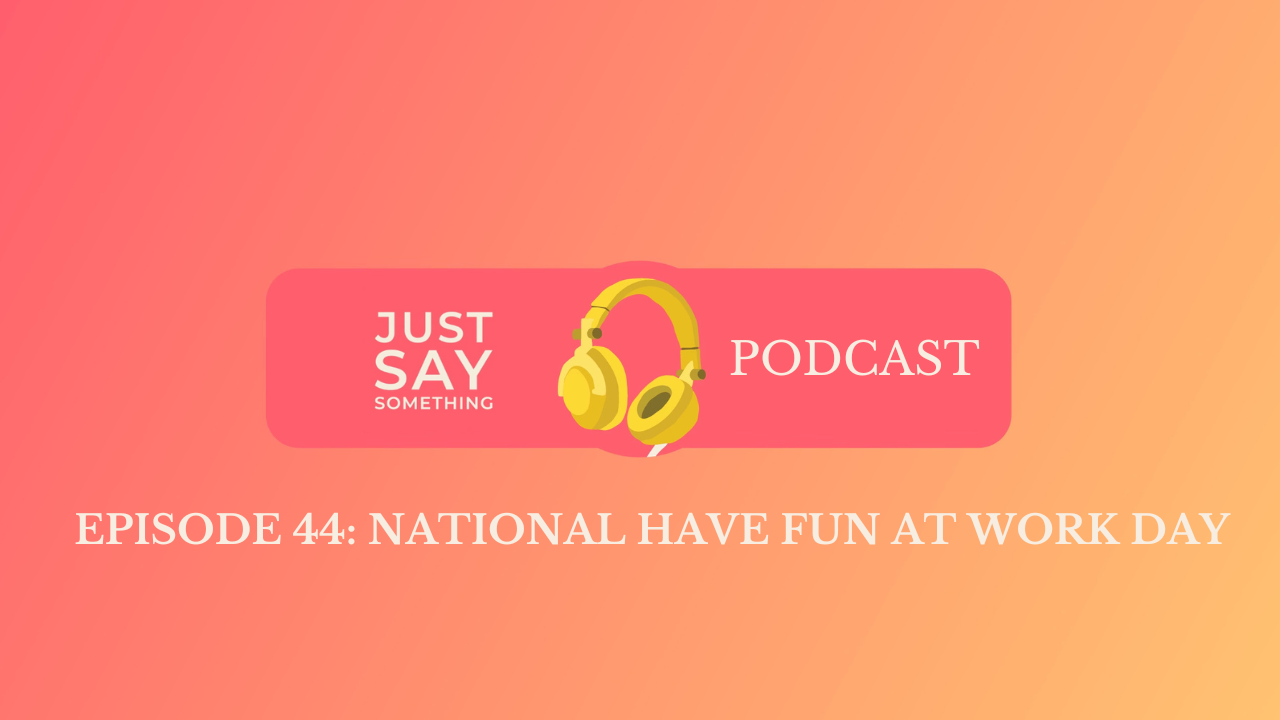[00:00:00] Foreign hey, hey, hey. This is Philip Clark, and you're listening to Just say Something podcast. Be sure to like, share and subscribe.
[00:00:19] So today we're or I'm going to talk about World mental health day. October 10th is World Mental Health Day, a global moment to say out loud that many of us feel in quiet Mental health is health, and none of us should have to carry heavy things alone.
[00:00:44] This year's global theme focuses on access to support during disasters and emergencies, because when life turns upside down, getting help shouldn't be the hardest part.
[00:01:00] Today I want to speak to three circles of our community, our young people, our parents and caregivers, along with our neighborhoods and our leaders, about practical ways to notice, name and navigate what we're feeling.
[00:01:21] I'll guide a short breathing reset, share a few real life stories with details changed. We have to protect people's privacy and point you to resources you can use right now at Just say Something. We believe conversations can change the course.
[00:01:42] A single honest check in can interrupt isolation.
[00:01:48] A coach who notices a quiet kid on the sideline can plant courage.
[00:01:54] A parent who says I hear you instead of you're fine can open a door that's been shut for months.
[00:02:03] We see this in our programs week after week with families on the sidelines of our sports program through IMPACT in school hallways and in community rooms.
[00:02:15] When young people feel connected and believed, they become braver about asking for help. And when adults are equipped with a few simple tools, they can become better guides.
[00:02:30] If you only remember one phase from this episode, let it be this.
[00:02:37] You are not alone and you are not a burden.
[00:02:45] Struggling does not disqualify you from love, from belonging or support.
[00:02:51] If your nervous system has been on high alert from family stress, a natural disaster, a scary diagnosis, online bullying, or money worries, you're not weak. You're human.
[00:03:07] And help exist for moments exactly like these.
[00:03:11] If you're able, pause what you're doing and try this short reset.
[00:03:20] So name one thing you can see, one thing you can hear, and one place in your body that feels neutral.
[00:03:33] Not perfect, just not on fire.
[00:03:39] So breathe.
[00:03:41] Inhale through your nose for 4, 3, 2, and hold.
[00:03:52] And exhale through your mouth for 6, 5, 4, 3, 2, 1.
[00:04:06] Do that three times.
[00:04:11] Now place a hand on your chest, on the back of your neck, and say, right now, I am safe enough to take one next step.
[00:04:27] That's it.
[00:04:29] We're not fixing everything, we're just lowering the volume so you can choose your next step on purpose.
[00:04:39] Maybe you're telling yourself it's not that bad. Or I don't want to worry anyone. Or, you know, I should be able to handle this.
[00:04:50] Here's a truth we tell the people in our programs.
[00:04:56] Feelings are real, but there's also data. They tell you what matters and where. Support could help.
[00:05:04] You don't have to be perfect with words.
[00:05:07] Try I'm not okay and I don't know why.
[00:05:12] Or I need help with a heavy feeling.
[00:05:18] Your first conversation doesn't have to be your last.
[00:05:21] If one adult doesn't hear you, try another.
[00:05:25] Keep going until someone listens.
[00:05:29] Your first step today Text a friend or safe adult.
[00:05:35] Can we check in after school or after work?
[00:05:38] I want to talk to you about something real.
[00:05:42] You don't have to be a therapist or be therapeutic.
[00:05:47] Three things help more than you think. One Regulate first, then relate. If a conversation starts hot, take 90 seconds to breathe and soften your tone.
[00:06:04] Your calm body is the safe signal.
[00:06:11] Lead with curiosity, not a correction.
[00:06:15] Try what's your part?
[00:06:18] What's the part that feels worst?
[00:06:21] Or when does this hit you hardest?
[00:06:25] Morning, at school or at night?
[00:06:30] And then trade advice for a plan.
[00:06:33] Asked do you want me to listen help or handle?
[00:06:39] Listening means being present, Help means brainstorming, and handle means making a call together.
[00:06:52] Watch out for phases that can shut kids down, even with the best of intentions.
[00:06:59] Instead of oh, you're fine, try I can't see it, but I believe you feel it.
[00:07:09] Instead of at least try that sounds heavy.
[00:07:17] I'm with you.
[00:07:19] Instead of why would you feel that way?
[00:07:23] Try Makes sense your body would react like that.
[00:07:29] Your first step today put a 5 or 10 minute check in on your calendar. No screens. No multitasking.
[00:07:38] Ask one open question.
[00:07:41] What color is your mood today and why?
[00:07:46] Then reflect back what you heard in one sentence.
[00:07:52] Every community has people standing at the intersection of stress and stigma, including newcomers, seniors, veterans, and students who've moved three times this year.
[00:08:06] Families recovering from storms or job losses.
[00:08:10] The theme of this year's day reminds us during crisis, access to help is lifeline level important.
[00:08:20] We can all lower the thresholds between someone struggling and the support they deserve.
[00:08:30] So there are three ways to do that this month.
[00:08:35] Normalize help seeking.
[00:08:37] Post resources and numbers in break rooms, classrooms, or team chats.
[00:08:46] Use warm handoffs. Don't just suggest a helpline. Offer to sit with someone while they call or text, and then make space at your next practice. At your next staff meeting or class, begin with one moment of breathing or a temperature check.
[00:09:08] Rituals of calm build resilient teams.
[00:09:14] Your first step today is identify one barrier in your space.
[00:09:21] Maybe that's transportation, language, cost, child care, and then brain brainstorm. One practical workaround Small changes.
[00:09:38] Big Access if you or someone you love is talking about wanting to die, feeling hopeless or trapped, or is at risk of harming themselves or others, contact HELP immediately.
[00:09:57] Call or text 988 to reach the Suicide and Crisis Lifeline. It's free, it's confidential, and it's available
[email protected] from any device.
[00:10:18] Text HOME to 741741 to reach the Crisis text line.
[00:10:27] If someone is in immediate physical danger, call 911 and clearly state it's a mental health emergency.
[00:10:37] The person on the other end has access to resources to send right away.
[00:10:45] You're not overreacting. You're responding.
[00:10:50] Emergencies eventually leave the news cycles, but bodies keep the score. Recovery takes time.
[00:10:59] Here are four simple practices to steady yourself or your family.
[00:11:05] Routines before resolutions Eat. Sleep. Move. Connect. Keep it simple and consistent.
[00:11:16] Name the milestones Today I went to class.
[00:11:19] Today I made one call.
[00:11:22] Today I asked for help.
[00:11:25] Celebrate stubborn, ordinary courage.
[00:11:30] Right size the story.
[00:11:32] This happened. It affected me and I'm getting support is a more helpful narrative than I should be over it by now.
[00:11:43] Borrow a nervous system Healing often starts by sitting with someone already.
[00:11:51] If you don't have a person yet, you can borrow one from either 988 or build your own support group at Just say something. We want to equip families in the community to talk about hard things early and often.
[00:12:10] If you need a place to start, invite us to your school, your house of worship, your workplace for a small training on how to notice and respond.
[00:12:25] Plug into programs like our sports program through impact, where kids practice teamwork, emotional regulation, and leadership with caring adults around them.
[00:12:38] And then partner with us. Volunteer, coach, donate, or spread the word. Your support turns good intentions into weekly contact with real kids and families.
[00:12:51] And then here's a final word to anyone hurting if your world feels small and loud right now, I want to bless you with a sentence to carry in your pocket.
[00:13:06] I matter.
[00:13:08] My feelings are telling the truth about my experience, and I can take one next step.
[00:13:17] One next step might be sending a text that says, do you have five minutes?
[00:13:23] It might be walking into a school counselor's office.
[00:13:27] It might be opening your browser and starting a 988 chat.
[00:13:34] It might be telling a coach or neighbor, I'm not okay.
[00:13:39] Any of those steps count.
[00:13:42] All of them are brave.
[00:13:47] If today's episode helped you share it with one person.
[00:13:51] Post the resource numbers in your group chat.
[00:13:55] Check in with your kids, your parents, your spouse, your teammates, and your neighbors.
[00:14:03] If you need support right now, pause this episode and call or text 988.
[00:14:11] You're not alone and you are not a burden.
[00:14:18] I'm Philip Clark. Thanks again for listening to Just say Something podcast. Let's keep talking because just saying something can change everything.


